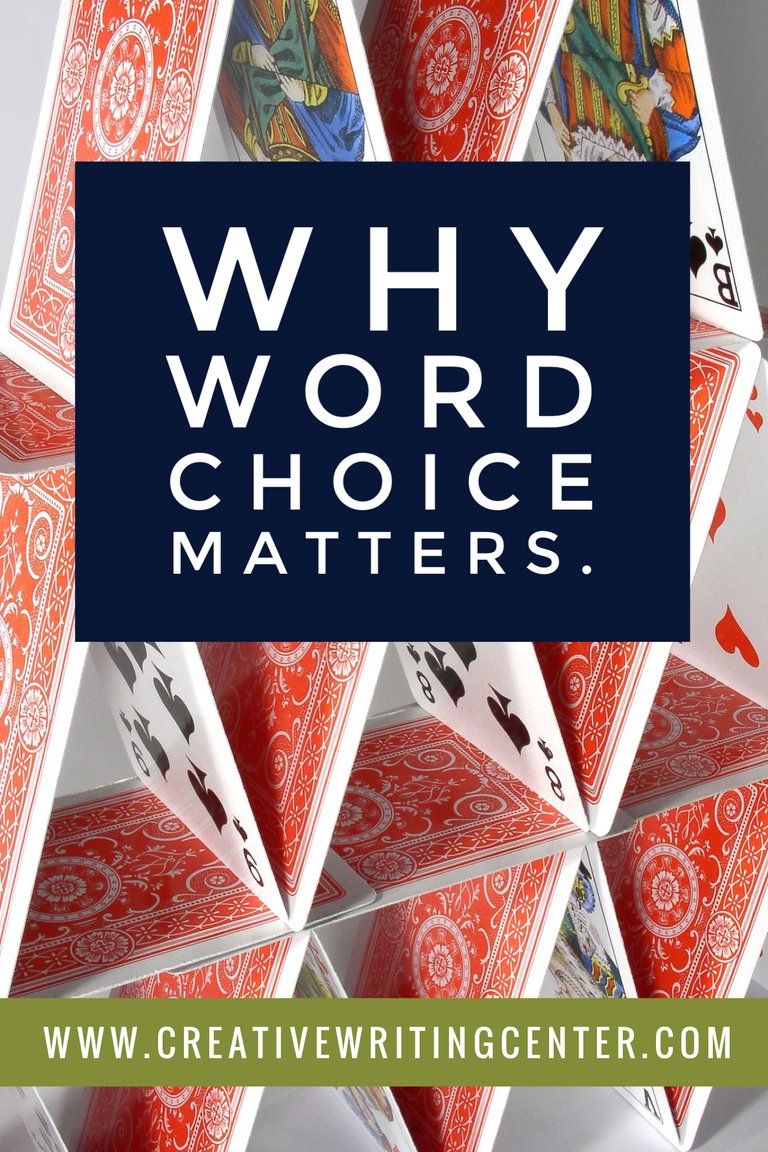
Writing is one set of choices after another—about imagery, sound, what to include, what to leave out, who to name, who to kill off, where to give background info, when to let readers fill in the blanks for themselves, and so on and on and on.
I want to talk a little about our building blocks, as writers: individual words. In workshops and writing courses or groups, feedback frequently references “word choice.” One of my former writing instructors used to write “WC” with a circle around it above or beside words she thought I should reconsider. I deeply appreciated that close reading, and I think just seeing my printouts littered with those circles made me very conscious of the choices I was making, down to each individual word.
Here are just five reasons why word choice matters so very much in good writing:
Specific is terrific.
I stole this from a famous writer and former teacher, because rhyming is also terrific and because, well, why say “He was chewing gum” when you could say “He was chomping on a piece of bright pink Bubble Yum”? Why say, “The stars were out” when you could say “The Fourth of July had nothing on the sky that night in September…”? Specificity gives your readers something to latch onto. If your readers latch on, you can take them anywhere.
Some words have associations you may not intend.
Don’t say “I slaved away in the kitchen” if the context is a suburban dinner party and you’re over-dramatizing how much work your character puts into being a proper hostess. Probably don’t even say “I slaved away in the kitchen” if the context is a New York City bistro kitchen where your first job was a consciousness-raising experience of the exploitation of wage workers. Know what I’m saying? Think about the historical context of the word “slave”—if that’s where you want your readers’ minds to go, then use it. If not, don’t.
Some words may be harmful.
These words usually occur in overly general or global, sweeping statements, such as “All women are hysterical.” “Hysterical” is a harmful word. And “ALL women” aren’t any one thing. See above reference to the word “slave.” If you aren’t sure whether a word is harmful or not, ask trusted friends or mentors to read your work and offer their opinion, and do some research. Make these efforts an irrevocable part of your revision process.
Some words are more evocative than others.
“Crimson” is more interesting than “red.” “Dinner” could be anyone’s evening meal, but “feast” suggests hunger supremely satisfied. “Walk” is boring; but a “stroll” indicates a leisurely pace, while “darting,” “jetting,” or “dashing” show speedy movement.
Some words are prettier than others.
Not all synonyms are created equal. “Exuberant” is more fun to say than “happy.” If you’re going for alliteration, then absolutely accumulate the most awe-inspiring allusions and adjectives you can which begin with the same letter and sound. Why settle for “rich” when you could say “decadent”? Choose words for their musicality as much as for what they evoke in your mind, and you will have written a fresh and memorable sentence.
Words matter. In good writing, a discerning and thoughtful writer will consider every single word as a vital building block upon which every other word balances, or to which every other word is connected. A wrong word could send your reader off in a direction you didn’t intend, and the whole house you’ve built could come tumbling down. The right words, though—purposefully considered and chosen—will make a solid foundation for your story.
Want to receive tips like these in your email inbox every Sunday morning? Sign up for our email list!
This post originally appeared on the blog for the Center for Creative Writing. I am the Center's director and this post is my original content.